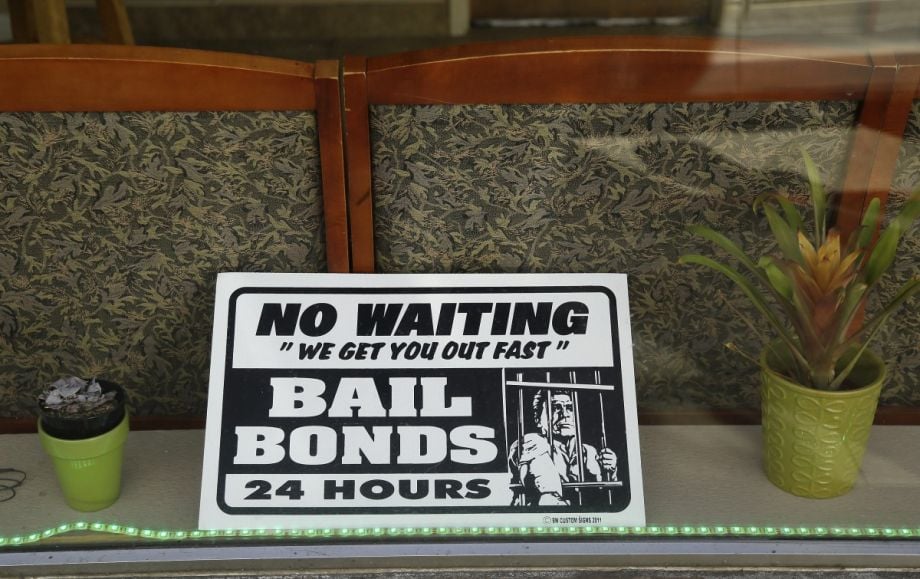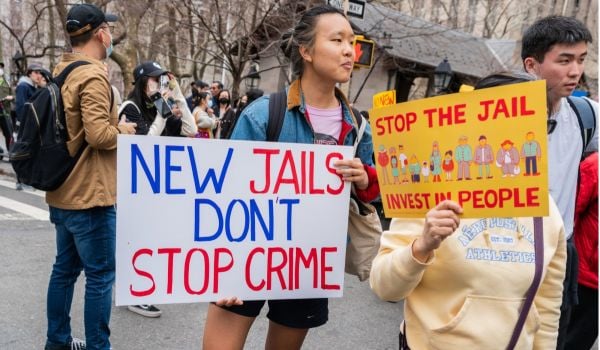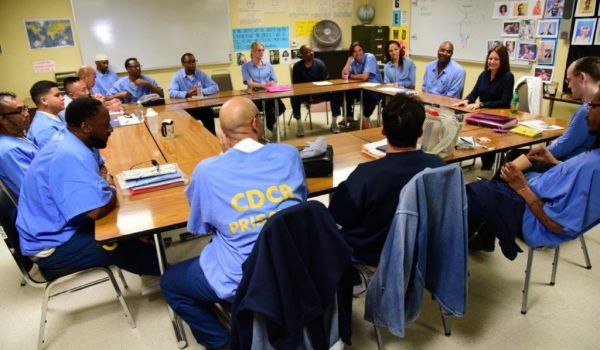A federal judge has banned Dallas County from using a predetermined schedule to set bail, the Dallas Morning News reports.
U.S. District Judge David Godbey wrote Thursday that the policy of setting bail without regard for a defendant’s ability to pay violated those defendants’ constitutional rights, according to the paper. His order is temporary, but the ruling indicates that the groups that sued the county earlier in 2018 are likely to prevail in any future lawsuits.
Those groups include nonprofits and recent arrestees in custody at the Dallas County Jail, who allege that the sheriffs, county, and magistrate judges, among others, employ a system of “wealth-based detention by imposing and enforcing secured money bail without an inquiry into and findings concerning the arrestees’ ability to pay,” the ruling states.
According to the paper, Dallas County officials had pledged to reform the system after The Dallas Morning News ran an article on a woman jailed with a $150,000 bond for a $105 shoplifting charge. The nonprofits that filed the suit claim that despite that promise, not much has changed.
From the paper:
Under Godbey’s order, pretrial staff at the courthouse must verify an arrestee’s ability to pay bail and must explain the process to them, and deliver a completed affidavit to the Dallas County Sheriff’s Office before a defendant’s probable cause hearing.
The affidavit will allow defendants to explain the maximum amount they could reasonably afford within 24 hours of the arrest, from any source, including family and friends. It will ask about income, debts and other expenses.
It won’t apply to defendants who are ineligible for pretrial release due to a hold by another agency, a pending mental health evaluation or pretrial detention orders that deem them too dangerous to be released.
The court order is similar to another in Houston, which Next City reported on earlier this year. In 2017, a federal judge ordered Harris County to stop keeping people arrested on misdemeanor charges in jail because they couldn’t pay bail.
“Harris County’s policy is to detain indigent misdemeanor defendants before trial, violating equal protection rights against wealth-based discrimination and violating due process protections against pretrial detention,” Judge Lee H. Rosenthal wrote in her ruling at the time.
However, a 2018 investigation by the Houston Chronicle found that the county’s bail reform efforts still had a long way to go. The paper alleged that the county’s pretrial system provided little supervision for the defendants most at risk of failing to appear in court.
“The result is a criminal justice system clogged with a growing number of failures to appear, months after a federal judge ordered the release of indigent defendants who can’t afford to post bail,” the Chronicle reported.
In California, too, bail reform efforts have been met with skepticism by some criminal justice advocates. As Next City covered earlier this month, California Governor Jerry Brown signed SB 10 on August 28. The bill orders that county cash bail systems be replaced with a “risk assessment” tool. Going forward, counties will use computer algorithms to determine the likelihood that a person facing trial will flee before their court date or commit a crime if not held in jail.
Critics of the bill, however, worry about many of the racial and class-based biases that are baked in to so many police-based algorithms (more on that here). For example, a ProPublica study from 2016 found that software designed for pretrial risk assessment was often inaccurate and biased against African-Americans.
Still, cash bail at the county level is increasingly considered the low-hanging fruit of criminal justice reform.
“Money bail inherently discriminates against the poor and removes the decision about actual release from custody from the court to profit-motivated entities,” Penny Stinson, president of the National Association of Pretrial Services Agencies (NAPSA), told Next City several years ago. “Most troubling is the lack of relationship between a defendant’s ability to post a monetary bond and their reliability to return to court or threat to community safety.”

Rachel Dovey is an award-winning freelance writer and former USC Annenberg fellow living at the northern tip of California’s Bay Area. She writes about infrastructure, water and climate change and has been published by Bust, Wired, Paste, SF Weekly, the East Bay Express and the North Bay Bohemian
Follow Rachel .(JavaScript must be enabled to view this email address)
















